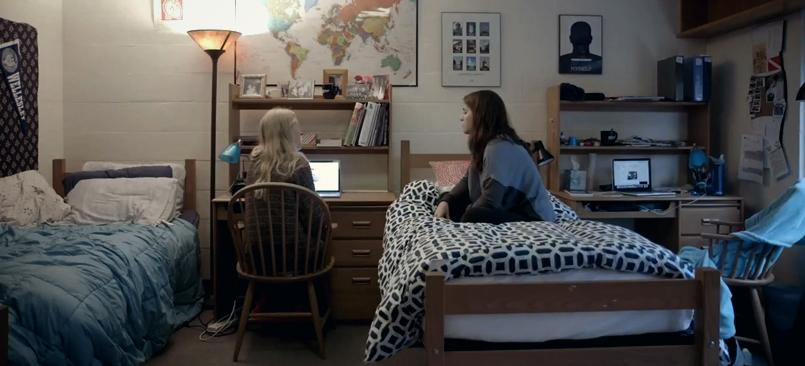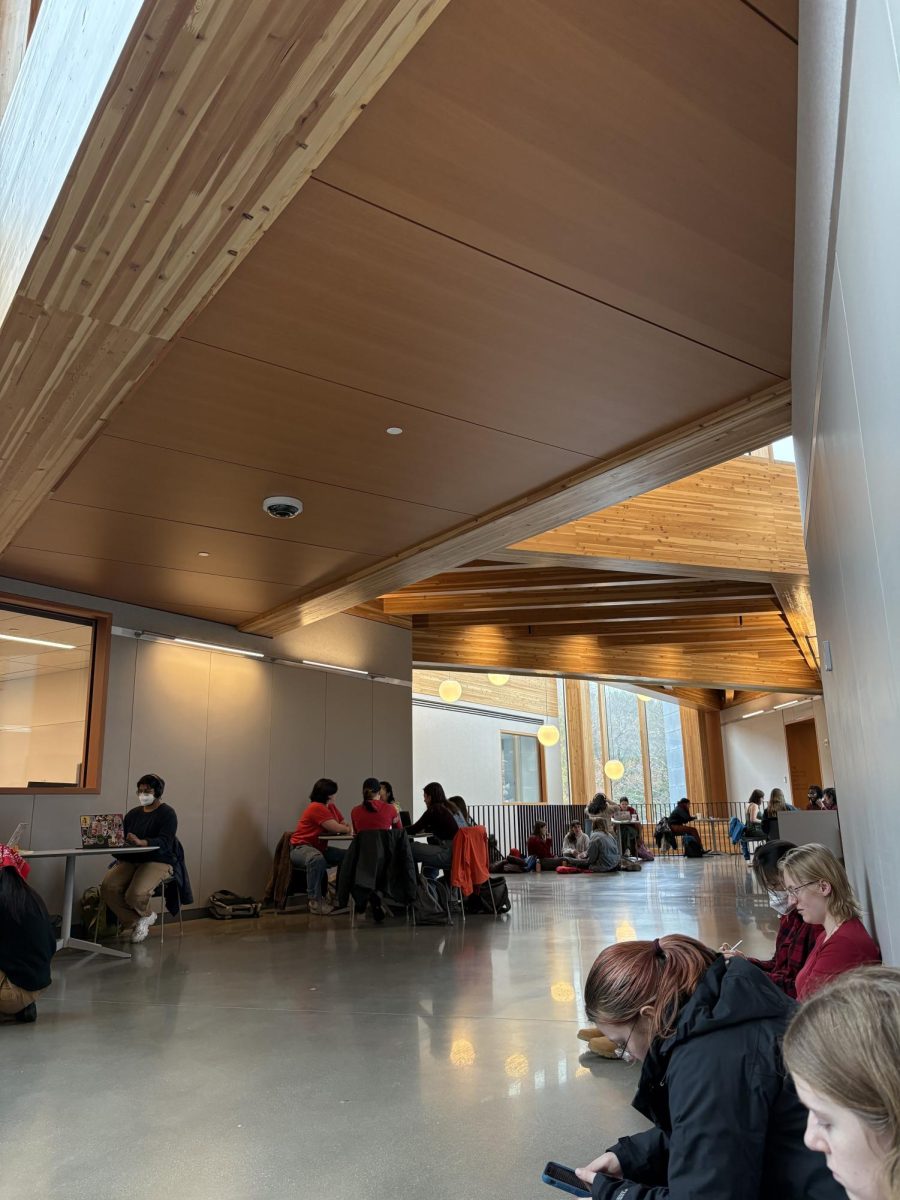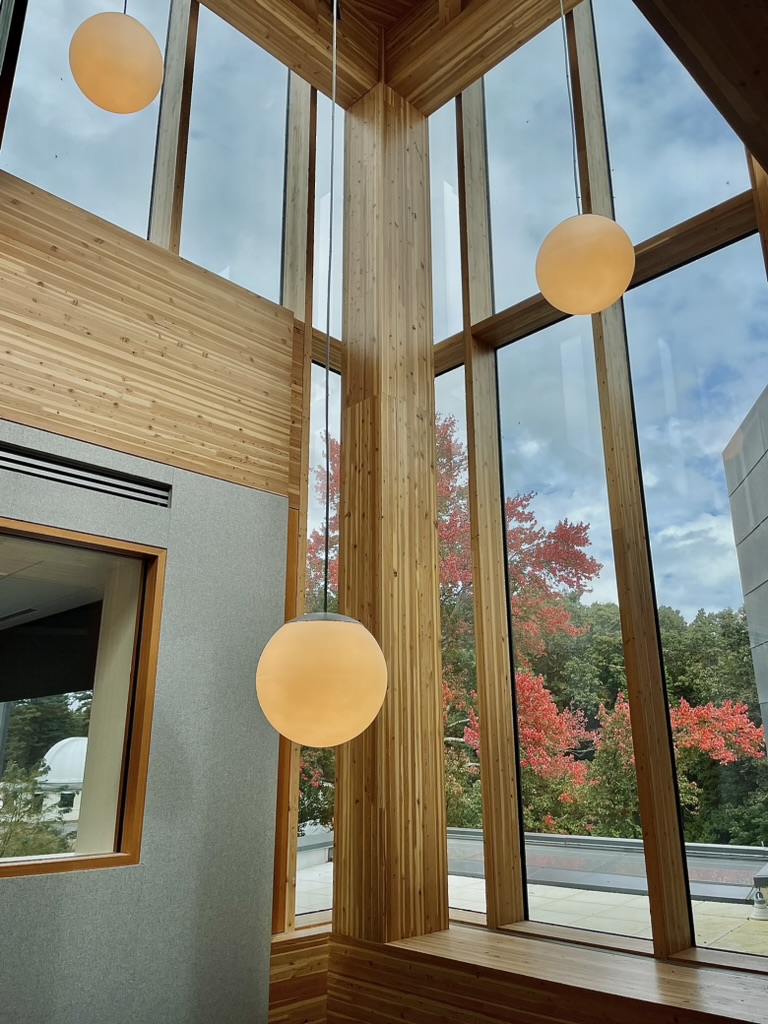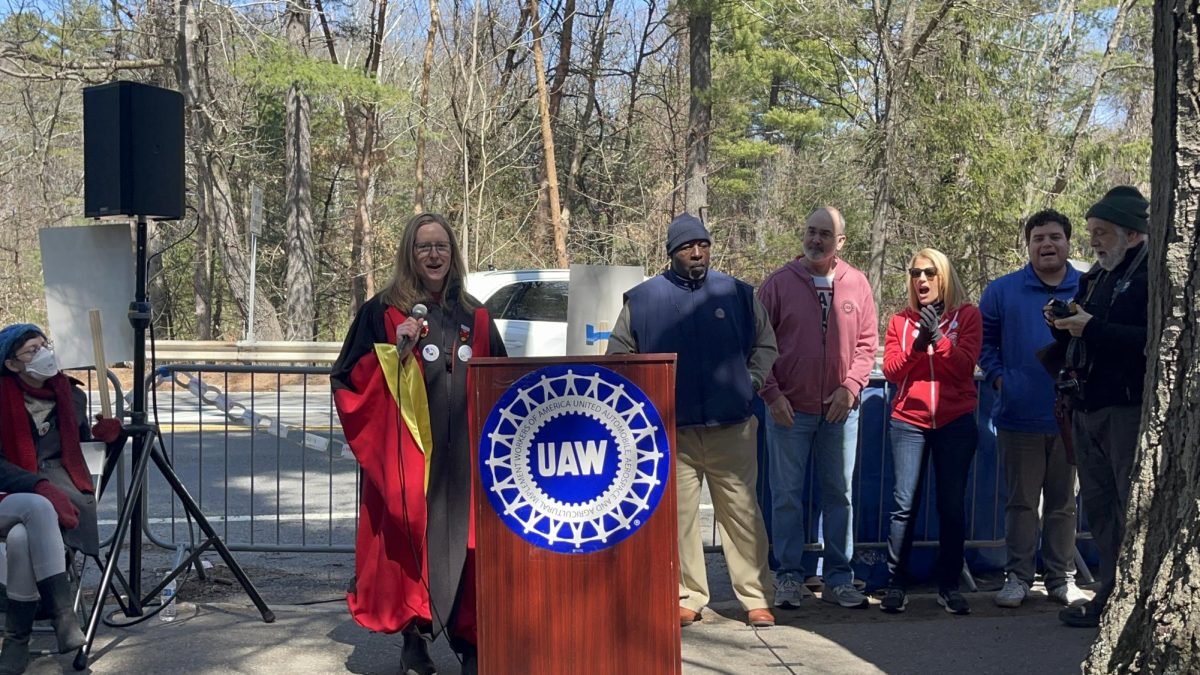All students, regardless of their housing plans for next semester, are required to fill out a housing intent form on the StarRez housing portal by Dec. 2. Part of filling out the form will involve signing the 2019-2020 housing agreement which “outlines the terms and conditions associated with living in student housing at Wellesley,” according to the Office of Residential Life (ORL). Most students already signed the 2019-2010 housing contract for Spring 2019, but they are expected to re-sign the contract when they submit their housing intent form. Some students on campus have raised concerns over language in the 2019-2020 housing contract, which students on social media have labeled as “vague,” and additionally flagged two clauses that were not present in older housing contracts.
One of these new clauses states that “the College reserves the right for authorized representatives of the College to enter accommodation at any time to plan or perform maintenance. Such entrance may occur unannounced and/or without notice.” This is a departure from previous housing contracts, such as the 2016-2017 housing contract, which promised students a twenty-four hour notice “except in case of an emergency,” citing students’ “constitutional right to be free of unreasonable search and seizure.” In Senate on Monday, Nov. 18 however, Dean Sheilah Horton said that unannounced entrance are not compliant with school policy and that school employees may enter only after knocking.
In a school-wide email, Assistant Vice President of Facilities Management Dave Chakraborty said of the new clause, “Once you have submitted a work order, Facilities is authorized to begin work on the repair, so you may not receive further advance notification.” Chakraborty also assured students that “at all times, Facilities staff will knock on your door and announce themselves to give you an opportunity to open the door prior to their entry. At no point will a staff member enter any student room without knocking loudly and waiting for a response. If there is no response, they will enter the room and begin work.”
Kaila Webb ’20, one of the first students to raise questions about the language used in the 2019-2020 housing contract via social media, told the Wellesley News about her own personal experience with unexpected entry. “Over the summer someone broke the knob off of my radiator,” said Webb. “I filed a work order like you’re supposed to and I got a notice later that week that [my request] had been accepted.” Webb explained that she went to class for 75 minutes and when she returned the knob had been fixed.
“I’m not too upset about this,” said Webb. “I just want to know what the rules are. But it’s kind of concerning that someone can enter your room while you’re gone. Our rooms are the only space on campus that are ours, so we should be able to control who can enter the room.”
Webb also voiced her concerns over a new clause which is conspicuously absent from the 2016-2017 housing contract, which states that “each student in the Residence Hall is jointly responsible for and will be charged a prorated share of the cost of any loss or damage from any cause to the public and semi-public areas of their residence hall.” Webb was particularly concerned by the vagueness of the phrase “from any cause,” wondering if the College will use the vague language to charge students for pre-existing damage to residence halls.
In response to these concerns, Director of Residential Life and Housing Helen Wang explained, “Damage caused by students in residence is very unusual in Wellesley. We haven’t had to charge students for this, but if damage were to happen, we would need to remedy that. That is what this clause is for – to protect the residence experience for all future residents.” Wang also stated that the College has a record of pre-existing damage to residence halls, writing, “A record of the current conditions of all of halls and this data is collected and maintained on a regular basis by Housing and Facilities.”
Although the idea of colleges having prorated charges for damage to public spaces is not uncommon, other colleges such as Wesleyan University provide a list of types of damages and the cost that the responsible student or students will be charged. For example, an item left in the hallway at Wesleyan will cost $100, a damaged security screen will cost $500 and a damaged elevator will cost $1000. Wellesley has yet to supply students with a list of potential damages and their costs, although according to Wang, in terms of prorated costs “we are literally talking about cents.” Still, some students objected to the idea of prorated charges on principle. “It’s group punishment,” said one anonymous member of the Class of 2022. “Punishing the group for the mistakes of one person isn’t right.”
One clause, stating that students are now responsible and liable for insuring their personal property for losses due to fire, smoke, water and theft, has also caused concern among some students. This is a common clause in college housing contracts, and a similar clause was included in the 2016-2017 housing contract, which said that “the student is responsible for the loss, theft, or damage to both College and/or personal property caused by the student or the student’s guests.” Some students have raised concerns with the language in the 2019-2020 version of the clause, particularly the inclusion of the word “water” and the implication that students need renters insurance.
Many colleges require students to purchase renters insurance to cover damages to personal property. However, because the Wellesley housing contract does not explicitly state that students need renters insurance, some students were left confused. “I need to know if I need renters insurance and what the College’s liability is,” said Webb. In response to these concerns, Wang wrote “… it’s best practice for students living in residence to covered [sic.] under homeowners/renters’ insurance. We know that some folks won’t have that and we are absolutely understanding of that situation.”
There is also concern that many insurance companies will not insure some of Wellesley’s most dilapidated dorm rooms. For example, Lemonade, a popular renters insurance company, has a clause in its contract which states that it “does not cover loss caused by mold, fungus, or wet rot unless hidden within the walls or ceilings or beneath the floors or above the ceiling of a structure.” Because there is visible water damage and mold in some dorm rooms, there is some concern that they will be uninsurable.
International students and undocumented students may also find it difficult to obtain renters insurance, which may leave their rooms uninsured. This is because many insurance companies require a social security number (SSN) in order to get renters insurance, so international and undocumented students may find their insurance company choices limited. International students on an F-1 visa are not given an SSN by the government unless they find employment and some insurance companies even require a U.S. citizen to co-sign the insurance policy, which might make the insurance process harder for international students.
The inclusion of the word “water” has perturbed some students because water damage has become a major issue in Munger Hall. At the beginning of this semester, pipes burst in the rooms of four first years living there. More pipes have burst in Munger Hall since then, and some students are concerned that affected students will be expected to pay for damage even if pipe bursts were not their fault. In response to this, Wang said of the students whose property was damaged in Munger Hall by water damage, “they met with me, we shared with the Dean’s Office and today, all of their listed damages were reimbursed. Done.”
Wang wrote of the 2019-2020 contract, “we will always do our best to do the right thing for our students and I hope that at some point, students will trust that is the case. This agreement is not in any way intended to be punitive, rather it is our way to communicate expectations, rights and responsibilities of the College and its students.”






